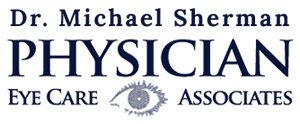
What to Expect at Your Comprehensive Eye Exam
When you notice that your vision has changed and think you may need glasses or contacts or notice that your current glasses or contacts aren’t doing the job anymore, you head to an eye care center for an exam.
But what you may not realize is that there are two types of exams: routine eye exam and comprehensive eye exam. Which one you’ll get depends on where you go and who performs the exam.
An optometrist, i.e., doctor of optometry or O.D., is a licensed eye care provider who can test you, diagnose any eye conditions you have, and treat you for them. On the other hand, an ophthalmologist is a licensed medical doctor (M.D.) or doctor of osteopathy (D.O.) who has received specialized education in eye care. Not only can he or she do what an optometrist can do, but he or she can also perform any surgeries or other medical interventions that you need.
Optometrists most often work for the company that owns the store or other location that provides vision testing. Usually, these vision centers are attached to a store where you can buy glasses and contacts.
Optometrists are more likely to give you a routine eye exam.
Ophthalmologists usually have their own medical practice and provide comprehensive eye exams as well as follow-up care.
Routine Eye Exam Versus Comprehensive Eye Exam
The whole purpose of a routine eye exam is to check your vision, screen for eye disease, or update your glasses or contact lens prescription. In other words, you can expect to receive a diagnosis of such things as nearsightedness, farsightedness, or astigmatism.
As its name implies, the purpose of a comprehensive eye exam is to go well beyond the basics and determine whether or not you have an eye disease or condition, such as conjunctivitis, dry eye, glaucoma, cataracts, etc.
While routine eye exams usually take only 30 minutes or less, be prepared to spend at least an hour in your ophthalmologist’s office, probably more like 90 minutes. This is because of the increased number of examinations your doctor will perform and the time it takes them to analyze the results.
Tests Your Comprehensive Eye Exam Cover
Regular comprehensive eye exams should be part of your overall health maintenance. Why? Because your doctor can diagnose eye conditions and diseases and diseases such as diabetes and hypertension, i.e., high blood pressure.
After having you fill out a personal and family medical history form and asking you questions about various things he or she needs additional information about, your doctor will perform numerous eye tests, likely including the following:
- Visual acuity test that determines how close to 20/20 your vision is
- Retinoscopy test that determines how light affects different lenses your doctor places in front of your eyes
- Refraction test that determines which lens pairs give you the best vision
- Keratometry test that measures the shape and curve of your corneas
- Peripheral visual field test that assesses the extent of your peripheral vision
- Intraocular pressure test that measures the amount of pressure the fluid in your eyes puts on them
- Color blindness test that determines if you cannot see one or more colors and which ones they are
- Cover test that lets your doctor determine how well your eyes work together
- Ocular motility test that measures the quickness and smoothness of your eye movements
- Stereopsis test that measures your depth perception
- Slit-lamp test that allows your doctor to examine your eyes under high magnification, including your eyelids, cornea, conjunctiva, iris, and lens
- Glaucoma test, commonly called the puff-of-air test, wherein your doctor puffs a small, painless burst of air into your eyes to determine your eyes’ resistance and, therefore, your possible glaucoma risk
- Pupil dilation test wherein your doctor puts special drops in your eyes to temporarily make your pupils larger, allowing him or her to see your eyes’ internal structures better
- Visual field test to check for blind spots in your vision
The importance of receiving a yearly comprehensive eye exam cannot be overstated. Schedule yours today with Dr. Michael Sherman at Physician Eye Care Associations in Garden City, Michigan.
